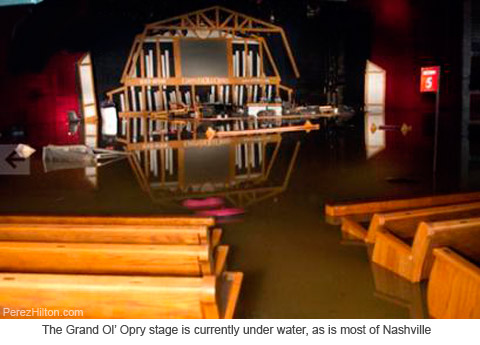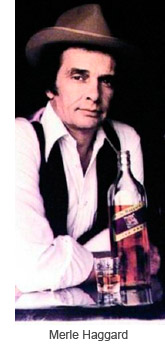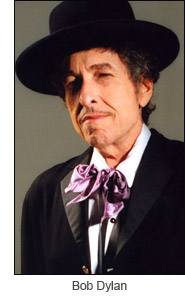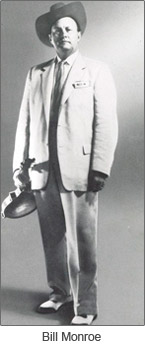For Nashville: Top 5 Country Songs About Floods

The death toll from the recent flooding in Tennessee, Kentucky and Mississippi has risen to 31, according to reports from CNN.com. Hardest hit by the torrential rains was Tennessee and its capital city, the home of country music, Nashville. 21 people have died in the Volunteer State and 10 of its counties have been declared disaster areas by President Obama. Damages in Nashville alone are expected to exceed $1 billion.
In honor of our Southern brothers and sisters suffering through this natural disaster I’ve put together what I think are some of the best songs ever written about the damages caused by too much rain, sung in the voices of some of country music’s greatest performers. It’s a diverse group that reflects the wide range of country music styles and influences that include bluegrass, honky tonk, rock-a-billy, folk and blues. If you’re a fan of country music, as I am, then be sure to check out all the efforts that have been put forth by the likes of Vince Gill, Taylor Swift and the CMA.

Number five on the list is from arguably the most talented country musician of all time. It can be said that other performers have had better voices (George Jones, Patsy Cline) and some performers naturally touched on a kind of greatness that only comes along once in a hundred years (Hank Williams), but as far as versatility, longevity and pure talent no one can hang with Merle Haggard.
Country vocalists rarely get talked about in the same circles as the jazz greats like Billie Holiday and Frank Sinatra, but I’ll put Merle Haggard’s vocal arsenal and skill up against anyone and I don’t think he could do worse than a tie. He can lift you up with the delicateness of “Silver Wings” and drag you right back down to the barroom floor with “I Think I’ll Just Stay Here and Drink.” He can belt it when telling you about his terminal case of “Ramblin’ Fever” and he can sing from underneath the surface of the swamplands of the human heart as he kicks the “Footlights” out again. And he does it with the defining characteristics of country music: simplicity and sincerity.
 Though he was never much for the Nashville establishment, Merle was always country to the bone. Not only was Merle actually born in a train car (his family was living in a converted boxcar at the time) but he was turned on to country music after hearing Johnny Cash perform at San Quentin State Penitentiary. That may not sound too amazing – after all, lots of folks were turned on to country music by Johnny Cash’s prison performances at Folsom and San Quentin, right? The difference with Merle is that he was IN San Quentin at the time, serving time for breaking into a bar while it was still open. Yes, these are the mythical stories of the true legend that is Merle Haggard.
Though he was never much for the Nashville establishment, Merle was always country to the bone. Not only was Merle actually born in a train car (his family was living in a converted boxcar at the time) but he was turned on to country music after hearing Johnny Cash perform at San Quentin State Penitentiary. That may not sound too amazing – after all, lots of folks were turned on to country music by Johnny Cash’s prison performances at Folsom and San Quentin, right? The difference with Merle is that he was IN San Quentin at the time, serving time for breaking into a bar while it was still open. Yes, these are the mythical stories of the true legend that is Merle Haggard.
But enough about Merle and on with the song! When researching this list, 95% of the country songs I ran across having to do with floods or rain or storms were all transparent metaphors for relationships gone bad. Not wanting to clog up the list with too many broken-hearted tear jerkers, I decided I would pick just one – and that one is “When It Rains It Pours” off of Merle Haggard’s Blue Jungle album from 1990. Not only does it start off with thunderstorm sound effects and highlight Merle’s great singing voice, but the sad metaphor of the song seems to fit the flood tragedy perfectly. Above is a snippet of the song – here is the full version in a poor quality clip from Youtube:
You can listen to the entire song for free on Rhapsody:
“When It Rains It Pours” by Merle Haggard

The next song on the list is of the folk tradition from back when stories of natural tragedies weren’t passed down from generation to generation on websites and in encyclopedias but in songs and stories told on front porches. “Wasn’t That A Mighty Storm” is about a hurricane that made landfall on the eastern coast of Texas near Galveston in 1900. This recording of the song appears on Nanci Griffith’s Other Voices, Too (A Trip Back To Bountiful) from 1998, a follow-up to Nanci’s immaculate collection of contemporary folk songs, Other Voices, Other Rooms.
The performance features a laundry list of folk music icons including vocals by Nanci Griffith, Odetta, Emmylou Harris, Tom Rush, Dave Olney and Tom Russell among others. In the snippet above you can hear my favorite part sung by Odetta and Emmylou (it’s the second verse in the clip):
 Rain it was a’ falling
Rain it was a’ falling
Thunder began to roll
Lightning flashed like hell fire
The wind began to blow
Death the cruel master
When the wind to blow
Rode in on a team of horses
I cried,”Death, won’t you let me go”
The song transforms the tragedy of the hurricane and the death and havoc it caused into something triumphant! There is reverence in the singing, but there is also joy in the face of death, which exemplifies the ultimate power of music and art.
Link to the entire song at Rhapsody:
“Wasn’t That A Mighty Storm” by Nanci Griffith

Number three may raise the eyebrows of some, but I think Bob Dylan would be the first to confess a tight connection between his music and traditional country and folk. Plus, “High Water (For Charley Patton)” is dedicated to the Father of the Delta Blues Charley Patton, who was born and lived in the great state of Mississippi, which has lost 6 people to the recent flooding.
(Oh, and did I mention it has a banjo?)
“High Water” is from Dylan’s recent Renaissance period (2001’s Love and Theft) and is one of the best of Dylan’s apocalyptic masterpieces. It’s playful, literal, metaphorical, humorous and deadly serious, and like many of Dylan’s seemingly random imagery-rich epics, you believe every word because it sounds exactly right:
 High water risin’, six inches ’bove my head
High water risin’, six inches ’bove my head
Coffins droppin’ in the street
Like balloons made out of lead
Water pourin’ into Vicksburg,
don’t know what I’m going to do
“Don’t reach out for me,” she said
“Can’t you see I’m drownin’ too?”
It’s rough out there
High water everywhere
Well, George Lewis told the Englishman,
the Italian and the Jew
“You can’t open your mind, boys
To every conceivable point of view”
They got Charles Darwin trapped
out there on Highway Five
Judge says to the High Sheriff,
“I want him dead or alive
Either one, I don’t care.”
High water everywhere

Never one to shy away from death, darkness and such apocalyptic things as floods, Johnny Cash recorded “Five Feet High and Rising” for his 1959 concept album Songs of Our Soil. Much like his gallows countdown “25 Minutes To Go,” “Five Feet High and Rising” is an hourglass ballad, measuring time with the rising waters of the Mississippi River flood of 1937 that saw waters 15 feet above flood stage after 21 consecutive days of rain.
 Johnny Cash was a five-year-old boy at the time living on his parents’ farm in Dyess, Arkansas and the story is told through his boyhood memories. Johnny’s signature baritone gives the song Biblical significance (the real magic of Cash) but the escalating destruction is tempered by the humorous and matter-of-fact descriptions of his boyish recollection, which makes the tune seem almost like a children’s song:
Johnny Cash was a five-year-old boy at the time living on his parents’ farm in Dyess, Arkansas and the story is told through his boyhood memories. Johnny’s signature baritone gives the song Biblical significance (the real magic of Cash) but the escalating destruction is tempered by the humorous and matter-of-fact descriptions of his boyish recollection, which makes the tune seem almost like a children’s song:
Well, the hives are gone,
I’ve lost my bees
The chickens are sleepin’
In the willow trees
Cow’s in water up past her knees,
Three feet high and risin’
The walking contradiction (partly truth and partly fiction) that was The Man In Black injected a good deal of pessimism into his songs, especially when it came to the fallen nature of man, but he would almost always counter that pessimism with his faith in God and an almost Marvel super-hero-esque ability to recognize the grace that is in the world and in our lives. Here is one of Johnny’s own introductions to the song:
My mama always taught me that good things come from adversity if we put our faith in the Lord. We couldn’t see much good in the flood waters when they were causing us to have to leave home, But when the water went down, we found that it had washed a load of rich black bottom dirt across our land. The following year we had the best cotton crop we’d ever had.
The version at the top is the studio version – here is a live version from the 1950s:

Coming in at number one is the father of bluegrass music, Bill Monroe and his son, James Monroe. (The recent flooding has taken the lives of four people in the Bluegrass State of Kentucky.) Though the song sounds like it was written in the 1920s, “Muddy Waters” was penned by Seldom Scene guitarist Phil Rosenthal in the late seventies and recorded by Bill and James for their 1978 album Together Again.
“High and lonesome” is at its best when it’s tackling the worst, and having your entire life washed away in the muddy water chaos of a flood certainly qualifies. Everything that was is no more – your farm, your home, your daddy’s grave, hope… all gone – reclaimed by the unthwartable tohu wa-bohu.
 Morning light showed water in the valley
Morning light showed water in the valley
Daddy’s grave just went below the line
Things to save you just can’t take them with you
The flood will swallow all we leave behind.
It’s hard to say just what I’m losing
Ain’t never been so all alone
Shifting land and broken farms around me
Muddy water’s takin’ back my home.
Mary take the child the river’s rising
Muddy water’s takin’ back the land
This old house can’t take one more beating
Ain’t no use to stay and make a stand
I won’t be back to start all over
What I felt before is gone
The road is gone there’s just one way to leave here
Muddy water’s taken back my home
Muddy water’s taken back my home
When I first heard this song a few years back I just assumed that it was Bill on lead vocals, but according to the Bear Family sessionography it’s actually James. Like father, just like son! Whichever Monroe it is, in the second line of each verse he lifts us up and up and up and then keeps us suspended – “Ain’t never been so all alooooooooooooooooooooone” – before the guitar steps us back down where the voice is waiting for us again.
The water is high and the voice is lonesome. It’s just a beautiful song – what else can I say? (Sadly the album Together Again is not available on CD, so to hear it you will either need to buy the LP or do like I did and get the expensive – but worth every penny! – Bear Family CD box set Bill Monroe Bluegrass 1970-1979.)
Before you Johnny Cash fans start posting angry comments I’m going to offer a little bonus to wrap things up. Johnny is a fan of “Muddy Waters” as well, so much so that he recorded it for his under-rated gem of an album Silver in 1979. Here’s the opening snippet from Johnny’s much tougher version:
Some great songs that didn’t quite make the Top Five:
“Rain Please Go Away” – Alison Krauss and Dan Tyminski
From Lonely Runs Both Ways
“Storms Never Last” – Waylon Jennings and Jessi Colter
From All American Country
“How Much Rain Can One Man Stand” – Waylon Jennings
From The Journey: Destiny’s Child (Box Set – Disc 6)
“Flood of ’57” – Ralph Stanley & The Clinch Mountain Boys
From Ralph Stanley 1971-73 (Box Set – Disc 3)
“Steady As The Rain” – Dolly Parton
From The Grass Is Blue
“Rainy Day Blues” – Willie Nelson
From Tales Out Of Luck and Milk Cow Blues (and many others)
Want to help out with the relief efforts? Here is a page with lots of links to ways you can help whether it’s with your money, your stuff or your time.
Subscribe to Starcasm by Email


